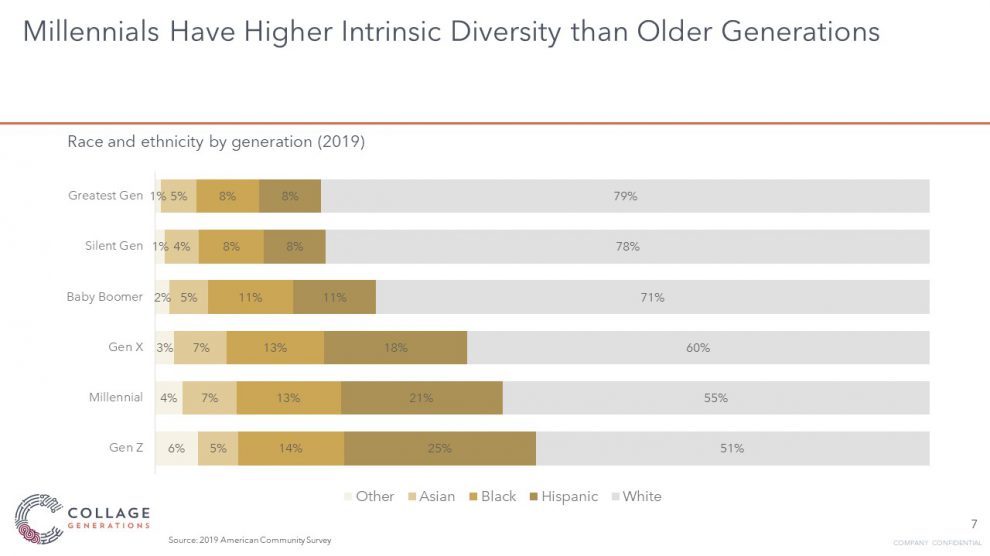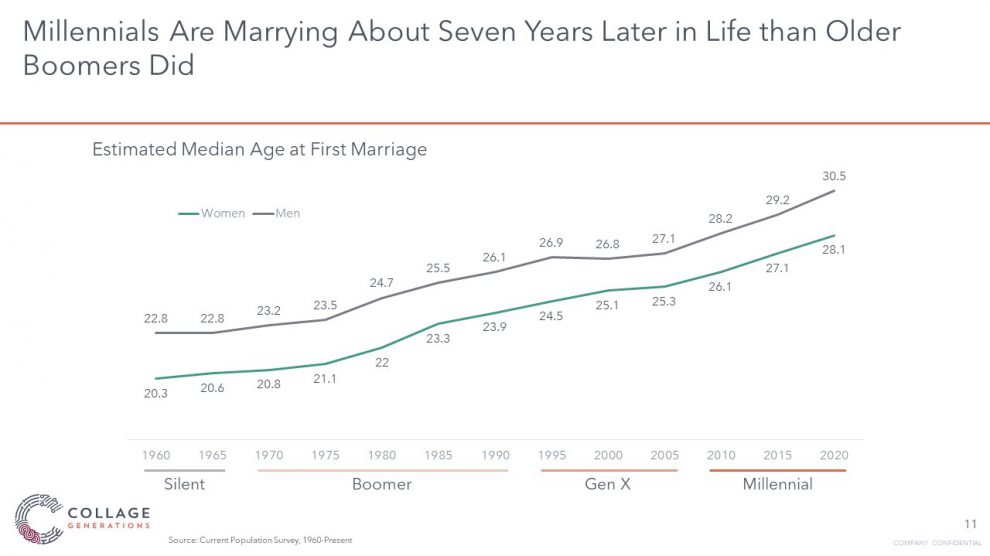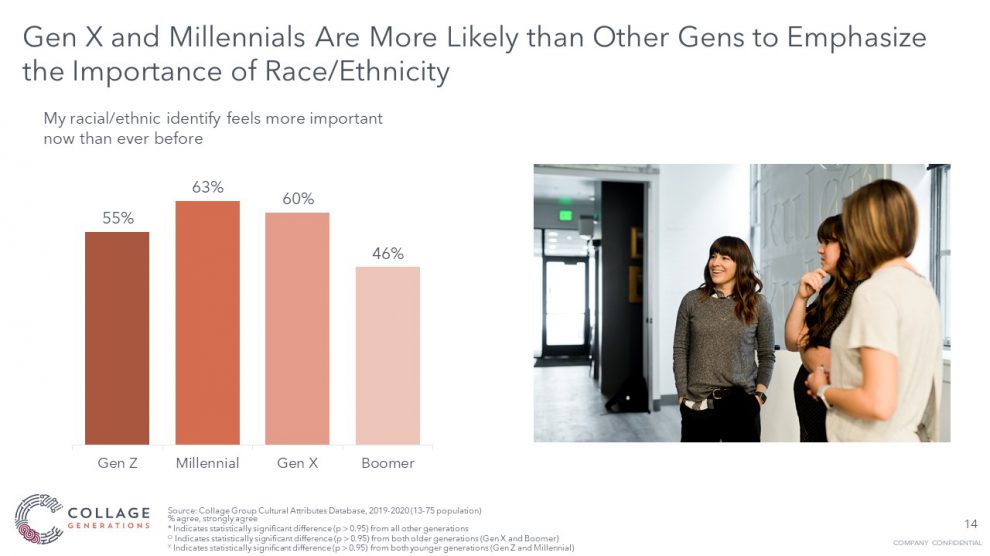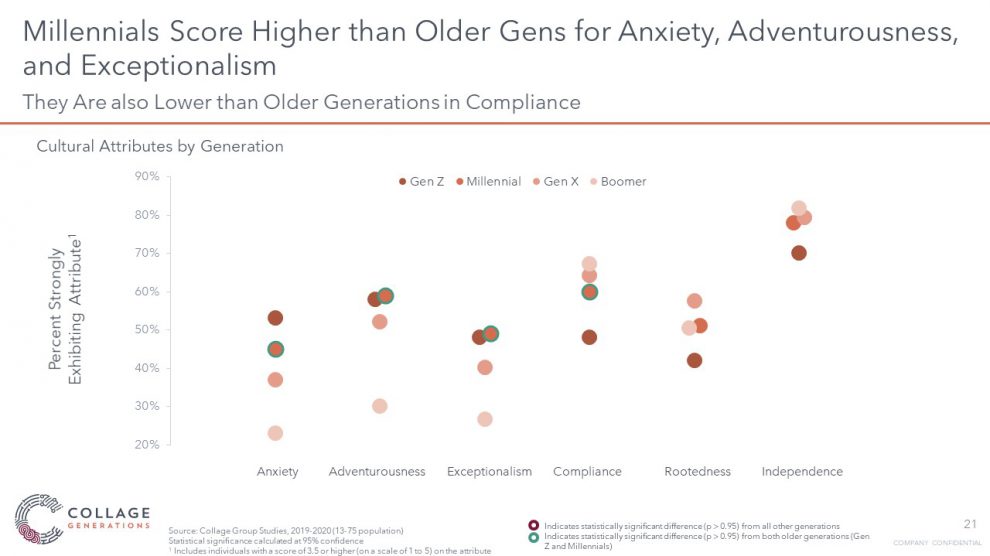Essentials of Millennial Consumers, 2021

Collage Group’s Essentials of Millennial consumers explores three areas of our consumer fundamentals research: demographics, identity, and Cultural Traits. Read below for several key insights.
1. It is clear: Younger American generations are more diverse than older generations.
The country is projected to reach Majority Minority status (where the white population dips below 50%) in about 30 years, but that demographic shift is being driven by young Americans now. Gen Xers saw the biggest increase in diversity from older generations, but Millennials saw even larger levels of diversity. Millennial’s intrinsic diversity means also that they have higher expectations for brands to go beyond simple inclusive representation in their marketing efforts to demonstrate true cultural nuance and understanding.

2. Due to shifts in society, including financial constraints, Millennials have delayed many life milestones. When it comes to marriage, Millennials have waited much longer than older generations to tie the knot.
Compared to older Boomers, Millennials are now getting married nearly eight years later in life. Millennial women who marry are doing so around 28 years old (compared to Boomer women at just 21 years old) and Millennial men tend to be nearly 31 years old (compared to Boomer men at 23 years old) when they walk down the aisle.

3. Millennials are more likely than all other generations to say that their racial/ethnic identities feel more important today than ever.
This is even higher than the more diverse Gen Z generation. Gen X Americans share this sentiment with Millennials making this issue less about old vs. young and more about generational context. Boomers may not be reflecting on race in the same way as other generations due to their limited internal diversity. Gen Z may be more focused on intersections of race, sexuality, age, and class bypassing more generic demographic categories like race. Millennials and Gen X are more diverse than Boomers and have experienced a major shifting in how society views and engages with race and ethnicity. The result is a generation more focused on their own racial/ethnic identities.

4. Cultural Attributes are a set of six relatively general, culturally-significant personality characteristics that help us better understand American consumers.
Millennials score the highest of all generations in the Cultural Attributes of Adventurousness and Exceptionalism. Millennials also part ways with Gen Z by scoring significantly higher in Independence. Millennials’ Cultural Attributes highlight a generation that values new experiences, sees their worldview as unique, and are more likely than Gen Z to act independently from those around them.

5. Brands can better connect with Millennials by leveraging the cohort’s Group Traits.
Four key Group Traits for better engaging with Millennials include: Ambition, Go-with-the-Flow, Cosmopolitan, and Tuned-in. These traits can be used to create more authentic advertising, connect across cohorts through shared traits, and identify opportunities to better position your brand.